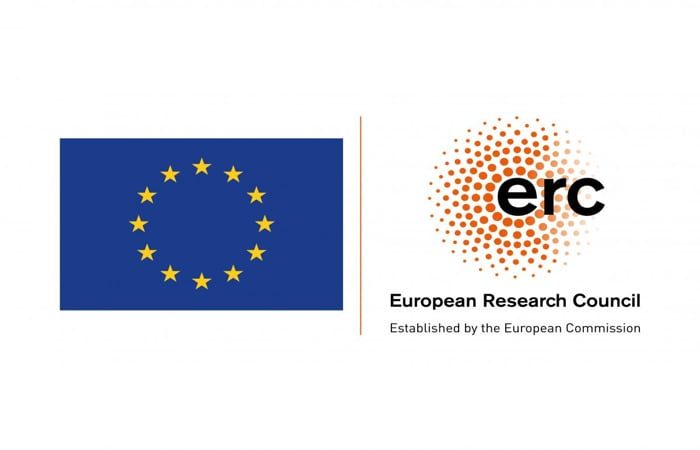Professor Marios Polycarpou, Director of the KIOS Research Center for Intelligent Systems and Networks at the University of Cyprus, chaired a 15-member evaluation panel which met twice in 2015 and 2016 in Brussels to select the recipients of this year’s ERC Advanced Grants in the area of Electrical and Computer Engineering. The Evaluation Panel consisted of internationally recognized scholars, who were charged with the responsibility of selecting the top research proposals for the most prestigious funding awarded by the European Union.
In particular, Professor Marios Polycarpou had been appointed by the European Research Council to Chair the ERC Evaluation Panel PE7, responsible for the review and evaluation of ERC Advanced Grant submissions in the scientific areas of Systems and Communication Engineering. These areas include the entirety of the Electrical and Computer Engineering field, as well as certain submissions in Applied Computer Science, Applied Physics, and Applied Mathematics. Funding via the ERC represents 17% of the overall budget (€ 13.1 billion of € 77 billion), for the EU’s Research and Innovation program (Horizon 2020).
Professor Marios Polycarpou is also currently a holder of an ERC Advanced Grant, which started in 2012. When asked about his appointment, Professor Polycarpou stated: “Of course, I am extremely honored to serve in the capacity of Panel Chair for the ERC Advanced Grants. It is a challenging position of high responsibility, but at the same time it is a rewarding experience to have the opportunity to witness the creativity and excellence of the top European researchers in the field. Indeed, the ERC Advanced Grant is the highest level of grant available in Europe and the selection process is extremely competitive. As stated in the ERC guidelines, it is awarded to “exceptional established research leaders for pursuing ground-breaking, high-risk projects that open new directions in their respective research fields or other domains”.
The Rector of the University of Cyprus, Professor Constantinos Christofides whilst congratulating Professor Polycarpou for his EU appointment stated that this appointment pays tribute to Professor Polycarpou’s extraordinary international profile and his high academic standing among his peers. Furthermore, the Rector believes that Professor Polycarpou’s appointment is especially significant for Cyprus explaining that “it is an honor for Cyprus to have a member of its scientific community selected to such an esteemed and responsible position. The University of Cyprus is proud to have one of its academics contribute to ERC’s mission to promote excellence in science within Europe. This appointment will certainly help to further raise the profile of the research community in Cyprus amongst its international counterparts.”
First Cypriot Scientist to be awarded ERC Advanced Grant
Professor Marios Polycarpou was the first Cypriot scientist to be awarded the ERC Advanced Grant by the European Research Council (ERC). The research grant of over €2 million was awarded to Prof. Polycarpou and his research team to allow them to pursue pioneering fundamental research aimed at designing and analyzing “smart” algorithms for real-time data processing, capable of improving the performance and fault tolerance of critical infrastructures such as power distribution systems, drinking water systems and transportation networks. Professor Polycarpou’s research team, is developing tools and design methodologies that would facilitate early detection, isolation and accommodation of “small” faults or unexpected events, before they cause significant disruption or complete system failures in complex distributed dynamical systems. In 2014, Professor Polycarpou was awarded an European Research Council (ERC) Proof-of-Concept grant for the related project “SmartTap”: Real-Time Monitoring System for Water Quality, focusing on innovation from research arising from the ERC Advanced Grant.
Prof. Marios Polycarpou is a Professor of Electrical and Computer Engineering and the Director of the KIOS Research Center for Intelligent Systems and Networks. He received undergraduate degrees in Computer Science and in Electrical Engineering, both from Rice University, Houston, TX, USA in 1987, and the M.S. and Ph.D. degrees in Electrical Engineering from the University of Southern California, Los Angeles, CA, in 1989 and 1992, respectively. After being a faculty at the University of Cincinnati, OH, USA between 1992-2001, he relocated from USA to Cyprus to become the first faculty to join the newly established Electrical and Computer Engineering Department at the University of Cyprus, where he served as founding Dept. Chair between 2001–2008.
Prof. Polycarpou’s research interests are in intelligent systems and networks, adaptive control and learning systems, fault diagnosis, computational intelligence, and distributed information processing. He has worked and published in several application domains, including automation in healthcare devices (6 patents), water distribution networks, smart buildings, autonomous vehicles, and transportation systems. He has published more than 300 articles in refereed journals, edited books and refereed conference proceedings, and co-authored 7 books. His work has received more than 12,000 citations according to Google Scholar.
Prof. Polycarpou is a Fellow of IEEE and IFAC, and past Distinguished Lecturer of Computational Intelligence. He is the recipient of the 2016 IEEE Neural Networks Pioneer Award and the 2014 Best Paper Award for the journal Building and Environment (Elsevier). He has served as the President of the IEEE Computational Intelligence Society (2012-2013), and as the Editor-in-Chief of the IEEE Transactions on Neural Networks and Learning Systems (2004-2010). He is currently the Vice President of the European Control Association (EUCA). Prof. Polycarpou has participated in more than 60 research projects/grants, funded by several agencies and industry in Europe and the United States.



